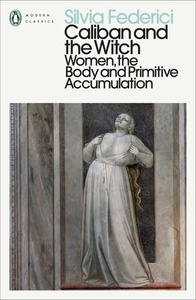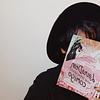Take a photo of a barcode or cover
challenging
informative
reflective
slow-paced
This is an ambitious and singular work of autonomous feminism, and it’s a lot of fun to read. Some of the sources are questionable, but I’m not sure that the fact that Federici may be working with inflated numbers of witch trials and related deaths actually undermines the argument all that much (ironically, there’s a similar dynamic here to some historians critiques of Foucault, with whom Federici is critically engaged in this text.)
Like fellow Midnight Noter Peter Linebaugh, Federici’s text is planetary in scope, tracing the gendered history of primitive accumulation from Capital’s earliest moments in the early Modern enclosures to the colonial conquests and genocides of the Spanish empire in the Americas. Federici insists that the experience of indigenous and enslaved women offers and important, but not originary moment in the history of capital’s disciplining of women to reproductive labor. As such, which she does spend a few pages talking about enslaved women, and an entire chapter on Colonial Latin America, most of the focus here is on Europe. For what it’s worth, “women” here is also mostly treated as a stable, biological category. The archive may not make it easy, but it would have been interesting to have some space here to think about ways not only that the signification of “woman” and her labor changed during this era, but I found myself wondering how this history of reproductive labor affected women who lived as men, men who lived as women, intersex people, etc.
Like fellow Midnight Noter Peter Linebaugh, Federici’s text is planetary in scope, tracing the gendered history of primitive accumulation from Capital’s earliest moments in the early Modern enclosures to the colonial conquests and genocides of the Spanish empire in the Americas. Federici insists that the experience of indigenous and enslaved women offers and important, but not originary moment in the history of capital’s disciplining of women to reproductive labor. As such, which she does spend a few pages talking about enslaved women, and an entire chapter on Colonial Latin America, most of the focus here is on Europe. For what it’s worth, “women” here is also mostly treated as a stable, biological category. The archive may not make it easy, but it would have been interesting to have some space here to think about ways not only that the signification of “woman” and her labor changed during this era, but I found myself wondering how this history of reproductive labor affected women who lived as men, men who lived as women, intersex people, etc.
Por fin o rematei!
Serviume para cabrearme e cagarme de medo, pero tamén para comprender mellor o kiriarcado.
Serviume para cabrearme e cagarme de medo, pero tamén para comprender mellor o kiriarcado.
informative
medium-paced
challenging
informative
Interesting ideas but too many unsubstantiated claims
informative
reflective
medium-paced
This book had been on my list for quite a while and I was very excited to read it, in large part because I firmly believe that witch hunts are an important and extremely understudied part of Western history. The core argument of the book is that the witch hunts were used as a tool to enforce capitalism and the social reorganization brought on by it (or even necessitated by it). For a book which uses the word "Foucauldian" as early as the introduction, I personally found the writing and argumentation to be surprisingly accessible and easy to read. I must admit I wasn't convinced by every aspect of the book or each argument, but overall I think the larger premise is sound, and that it is relevant to frame the witch hunts specifically and primarily in terms of female disenfranchisement (as opposed to the more easily dismissable explanations of "backwards" superstition). I highly recommend reading this book as it was indescribably eye-opening to me.
I really, really wanted to like this. Indeed, I did like it, and thought it was incredibly interesting and stimulated a lot of thoughts and reflections. The problem is that I don't think it's rooted very well in actual historical research - a pretty serious flaw for a book focusing on the witch-hunts and their medieval and colonial contexts. I've not studied the witch-hunts before, so at first this criticism was just in the form of minor historical inaccuracies about the early modern gender roles that I noticed while reading. There was also some shallowness with which some issues were addressed, a tendency to create a generalised European narrative rather than considering different geographical contexts, and the fact image sources were really not addressed or analysed in any way other than to flippantly (and not always convincingly) support what she was saying. These are inaccuracies that I was originally willing to overlook given how much I enjoyed the book and how historiography might have changed since it was written. After reading it, I looked up some reviews and discovered that her argument is slightly undermined by her massive over-estimation of the number of witches actually tried and executed, which she places about four times as high as the academic consensus. This all leaves me a bit unsure of how to rate the book, and opens up a lot of it to more scrutiny that I need to consider.
Lecture fascinante qui m'a également laissée un peu perplexe.
Sans avoir de formation en Histoire, j'avais pourtant l'impression en lisant Caliban et la Sorcière que l'autrice arrangeait parfois l'Histoire pour assoir sa thèse. J'aurais aimé partager sans réserve le contenu de ce livre mais en faisant quelques recherches, on s'aperçoit bien vite qu'il y a beaucoup à redire dans cet ouvrage :
https://blogs.mediapart.fr/yann-kindo/blog/101217/caliban-et-la-sorciere-ou-l-histoire-au-bucher-12-0
Particulièrement marquante, l'utilisation d'une image de femmes maçonnes qui prouverait une division peu marquée du genre dans le travail au XVe siècle. L'image est d'une part tronquée, d'autre part, provient d'une illustration d'un livre de fiction, ce qui n'est pas précisé en légende.
Bref, cette lecture m'aura tout de même donné envie d'explorer davantage les différents sujets abordés : l'impact des enclosures, les combats des hérétiques et bien sûr la chasse aux sorcières.
Sans avoir de formation en Histoire, j'avais pourtant l'impression en lisant Caliban et la Sorcière que l'autrice arrangeait parfois l'Histoire pour assoir sa thèse. J'aurais aimé partager sans réserve le contenu de ce livre mais en faisant quelques recherches, on s'aperçoit bien vite qu'il y a beaucoup à redire dans cet ouvrage :
https://blogs.mediapart.fr/yann-kindo/blog/101217/caliban-et-la-sorciere-ou-l-histoire-au-bucher-12-0
Particulièrement marquante, l'utilisation d'une image de femmes maçonnes qui prouverait une division peu marquée du genre dans le travail au XVe siècle. L'image est d'une part tronquée, d'autre part, provient d'une illustration d'un livre de fiction, ce qui n'est pas précisé en légende.
Bref, cette lecture m'aura tout de même donné envie d'explorer davantage les différents sujets abordés : l'impact des enclosures, les combats des hérétiques et bien sûr la chasse aux sorcières.
informative
inspiring
reflective
tense
slow-paced






